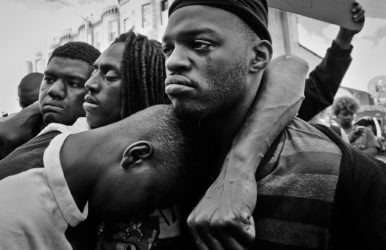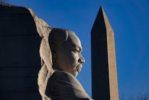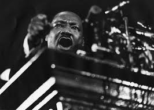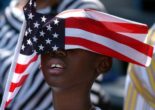 Featured – The Injustice of This Moment Is Not an ‘Aberration.’ By Michelle Alexander / NYT
Featured – The Injustice of This Moment Is Not an ‘Aberration.’ By Michelle Alexander / NYT
Ten years have passed since my book, “The New Jim Crow,” was published. I wrote it to challenge our nation to reckon with the recurring cycles of racial reform, retrenchment and rebirth of caste-like systems that have defined our racial history since slavery. It has been an astonishing decade. Everything and nothing has changed. Must read Also see, Ten Years After “The New Jim Crow”
 In 2011, Michael Shannon was wrongly convicted of murder, even though two jurors voted to acquit him — a result of a Louisiana law rooted in discrimination. By Emily Bazelon / NYT Magazine
In 2011, Michael Shannon was wrongly convicted of murder, even though two jurors voted to acquit him — a result of a Louisiana law rooted in discrimination. By Emily Bazelon / NYT Magazine
Louisiana and Oregon are the only states (along with Puerto Rico) that have deviated from unanimous jury convictions. In Louisiana, black people began to serve on juries during Reconstruction, when they won the right to vote. The first introduction of split verdicts in the state was in 1880, after Reconstruction ended, as part of a movement of white Southerners to re-establish their supremacy. Read more
 “Just Mercy”: Freeing an innocent man shouldn’t be this hard. By D. Watkins / Salon
“Just Mercy”: Freeing an innocent man shouldn’t be this hard. By D. Watkins / Salon
The “Just Mercy” backstory and trailer clearly shows us that racism is a character in the film. We see or hear that Stevenson is a black man fighting for justice and racial equality in Alabama and think, wow, this guy must love pain. And then eventually knowing that Stevenson’s work freed a black man who was convicted of killing a white woman in the south, slightly injects some faith into our historically flawed system. But should it? Seeing Stevenson fight for McMillian on film and winning the battle should be inspiring; however, it depressed me because McMillian’s freedom was a miracle, an accident, or a combination of both. Read more
 The values preached by Martin Luther King Jr. need rediscovering in 2020. By Colbert I. King / Wash Post
The values preached by Martin Luther King Jr. need rediscovering in 2020. By Colbert I. King / Wash Post
 Martin Luther King and the ‘polite’ racism of white liberals. By Jeanne Theoharris / Wash Post
Martin Luther King and the ‘polite’ racism of white liberals. By Jeanne Theoharris / Wash Post
“We do not need allies who are more devoted to order than to justice,” he wrote in a letter to civil rights leaders. “I hear a lot of talk these days about our direct action program alienating former friends. I would rather feel that they are bringing to the surface many latent prejudices which were always there.” Read more
 So much for the “liberal media”: Chattering-class hypocrisy is supporting Trump’s rule. By Chauncey DeVega / Salon
So much for the “liberal media”: Chattering-class hypocrisy is supporting Trump’s rule. By Chauncey DeVega / Salon
During the 2016 presidential campaign, Hillary Clinton warned us that “you can put half of Trump’s supporters into what I call the ‘basket of deplorables.’ Unfortunately there are people like that. And he has lifted them up.” Clinton was pilloried for that observation by the professional, “serious” and “respectable” voices of the American chattering class. Many in the media declared her to be an “elitist,” out of touch with “ordinary people.” Read more
 How 17 Outsize Portraits Rattled a Small Southern Town. By Audra D.S. Burch / NYT
How 17 Outsize Portraits Rattled a Small Southern Town. By Audra D.S. Burch / NYT
Newnan, Ga., decided to use art to help the community celebrate diversity and embrace change. Not everyone was ready for what they saw. Read more
 State of emergency: High tension in Virginia as right-wing gun fanatics descend on Richmond. By Amanda Marcotte / Salon
State of emergency: High tension in Virginia as right-wing gun fanatics descend on Richmond. By Amanda Marcotte / Salon
Buried under the cascade of serious national news Wednesday was the alarming story that Gov. Ralph Northam of Virginia had declared a state of emergency through next Tuesday evening in Richmond, the state capital. The declaration includes a ban on firearms and other weapons near Capitol Square, where the Democratic-led state legislature meets. Monday is a scheduled “lobbying day” for the Virginia Citizens Defense League, a far right pro-gun group, and Northam’s office announced that law enforcement has “identified credible threats of violence surrounding the event, along with white nationalist rhetoric and plans by out-of-state militia groups to attend.” Read more
 Black Americans are deeply pessimistic about the country under Trump, whom more than 8 in 10 describe as ‘a racist,’ Post-Ipsos poll finds. By Cleve R. Wootson Jr., Vanessa Williams, Dan Balz and Scott Clement / Wash Post
Black Americans are deeply pessimistic about the country under Trump, whom more than 8 in 10 describe as ‘a racist,’ Post-Ipsos poll finds. By Cleve R. Wootson Jr., Vanessa Williams, Dan Balz and Scott Clement / Wash Post
 Why the Senate’s impeachment trial has way too much in common with the Jim Crow past. By Amanda Marcotte / Salon
Why the Senate’s impeachment trial has way too much in common with the Jim Crow past. By Amanda Marcotte / Salon
 Joe Biden Doubles Down On A Racist Myth About Black Parents. By Michael Hobbes / HuffPost
Joe Biden Doubles Down On A Racist Myth About Black Parents. By Michael Hobbes / HuffPost Bernie Sanders articulates the quieter complexities of oppression. By Brandon Tensley / CNN
Bernie Sanders articulates the quieter complexities of oppression. By Brandon Tensley / CNN Navy to Name Aircraft Carrier in Honor of Doris Miller, First African American to Receive Navy Criss, On MLK Day. By Seren Morris / Newsweek
Navy to Name Aircraft Carrier in Honor of Doris Miller, First African American to Receive Navy Criss, On MLK Day. By Seren Morris / Newsweek Exclusive: Rep. Ayanna Pressley Reveals Beautiful Bald Head and Talks Alopecia for the First Time. By Jessica Moulite / The Root and You Tube
Exclusive: Rep. Ayanna Pressley Reveals Beautiful Bald Head and Talks Alopecia for the First Time. By Jessica Moulite / The Root and You Tube Richard Pryor told America about the struggle of black quarterbacks. By Justin Tinsley / The Undefeated
Richard Pryor told America about the struggle of black quarterbacks. By Justin Tinsley / The Undefeated Russell Wilson is the highest-paid player in the NFL—here’s how much he makes. By Kathleen Elkins / CNBC
Russell Wilson is the highest-paid player in the NFL—here’s how much he makes. By Kathleen Elkins / CNBC